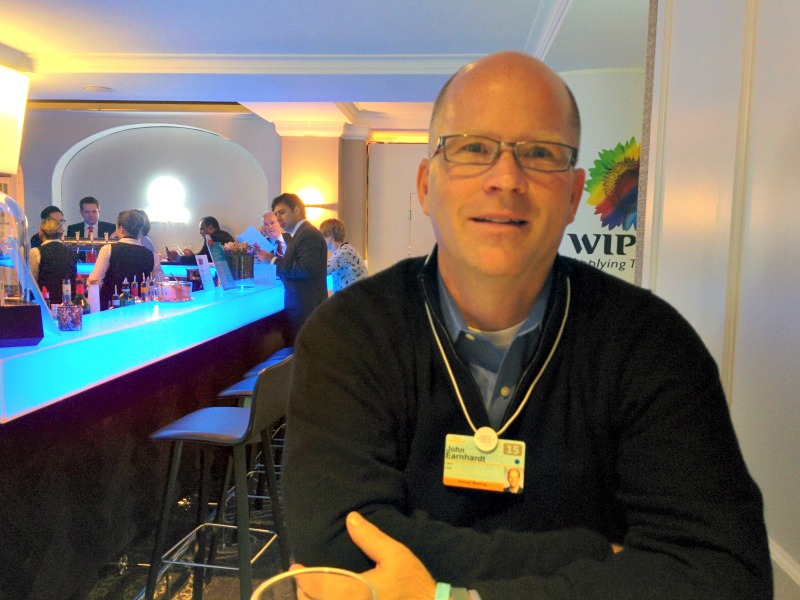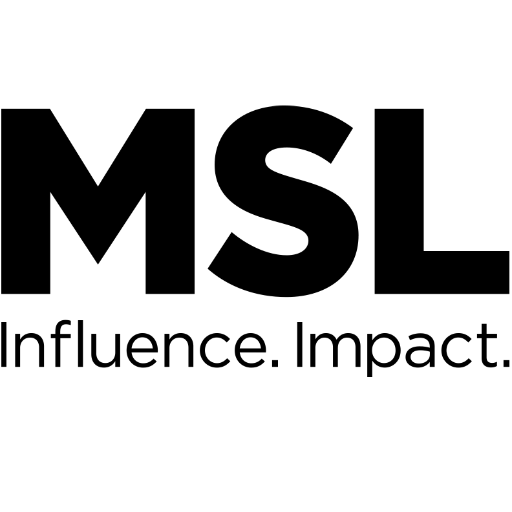Arun Sudhaman 23 Jan 2015 // 1:10PM GMT

DAVOS—It has been a busy week at the World Economic Forum for Cisco's John Earnhardt, whose CEO John Chambers has played a high-profile role at the event because of increasing concerns about data privacy and hacking.
Cisco has also launched a new brand campaign focused on the 'internet of everything', in a bid to make the idea of increasing digitisation more accessible for everyday consumers.
To discuss both of these trends and more, including the future of brand journalism and the company's approach to political issues, corporate comms director Earnhardt sat down for an interview with the Holmes Report.
Cisco CEO John Chambers has warned that hacking will get worse this year. Do you see that affecting trust in the tech industry in general?
It’s a double-edged sword without a doubt. Trust diminishes. On the other hand, with the digitisation of everything, there’s only going to be more internet tomorrow than there is today. We estimate that by 2020 there’s going to be 50bn connected devices. The opportunity for Cisco is, you have to secure it a network level. From a business standpoint we feel good about our technology. But also from a philosophical approach, the network has to play the major role in protecting devices.
What is the message the tech industry should be trying to get across to reassure people about data privacy?
One reassuring point is that a lot of the security breaches are because of human failure rather than technology failure. Process change can take care of a lot of these things. There’s still trust in the institution, which is not going away. Yet, trust in systems has to be a huge part of that. The one opportunity is to diminish some of the human error.
How do you see your new campaign changing perceptions of Cisco?
What we hope to do is get people to think more broadly about what all these connections can mean. We started talking about the 'internet of everything' about two years ago. A lot of people were like — 'what does it mean for me?' We’re really talking to governments and cities as a B2B company. For the person on the street, we want to bring a better understanding as we’re moving to this massive connectivity world. The creative is talking about a series of lasts — for example the last traffic jam. It’s those types of concepts.
"It’s important to have a footprint on issues you care about. You can take it or leave it, but at least you know what we think and where we stand."
You're a B2B company. Why make this campaign more personal, targeting consumers?
I’ve always approached 'internet of everything' from a business standpoint. Is this going to make me money or save me money? From a personal standpoint — if I want to see what Barcelona is doing and how their transportation systems are connected and it's a more efficient way of life — that affects where I want to live. It's bringing that accessibility because people are moving back into cities. Where do we want to create a level of demand for these types of services? It has to be about bringing connectivity back to you as a user. That’s going to make your quality of life increase.
Cisco was ahead of the curve when it came to brand journalism. Now that every company is trying to be a media company, what do you see coming next for corporate content?
I honestly think that at its core, whatever the content might be, if you are adding value to someone — your intended audience — there will be continued content generation to try and target your audience. It’s important to have a footprint on issues you care about. For example, today — what content on security and healthcare came out? Candidly, people are looking for that content. We’re not going to be in competition with the dailies.
That’s what we’re trying to do with our executives as well. We want people to know what they stand for — what do they think about the issues of the day? So we’re also a generating a programme of content from them. We do a lot of research — it is a way to hopefully add some value and give a thought or direction on technology or policy. It is to get people a little closer to us. We’re an organization of people who are smart, hardworking and have a thought. You can take it or leave it, but at least you know what we think and where we stand.
Even on political issues, which might be more sensitive?
I think most tech companies, and certainly Cisco, approach things quite pragmatically. What actually helps tech get out there easier? We’re not a highly-regulated industry. That’s been one of the reasons technology has been so successful over the last 15 years. You look at net neutrality and all these issues — there is an attempt for more regulation. We think technology moves so fast that by the time you regulate something, the technology likely outstrips the regulation. It’s more about the technology approach that helps us grow jobs and impact GDP. If you start regulation on top of things, that is going to slow it down and is not generally good for economic engines that we have.
What are the risks, when your executives are taking a stand on political issues?
We also want to align and protect our customers. You don’t want to come out on an issue that your customers are on the other side of. We don’t take our policy decisions lightly. We have a lot of conversations with customers and policymakers before coming to a point of view. Generally, the point of view is less regulation is good. Again, on tax reform, the US has the highest taxes in the world. Is that a good thing or a bad thing? We’re saying, just make the playing field a little even from country to country.


































.jpg)







.tmb-135x100.jpg)












